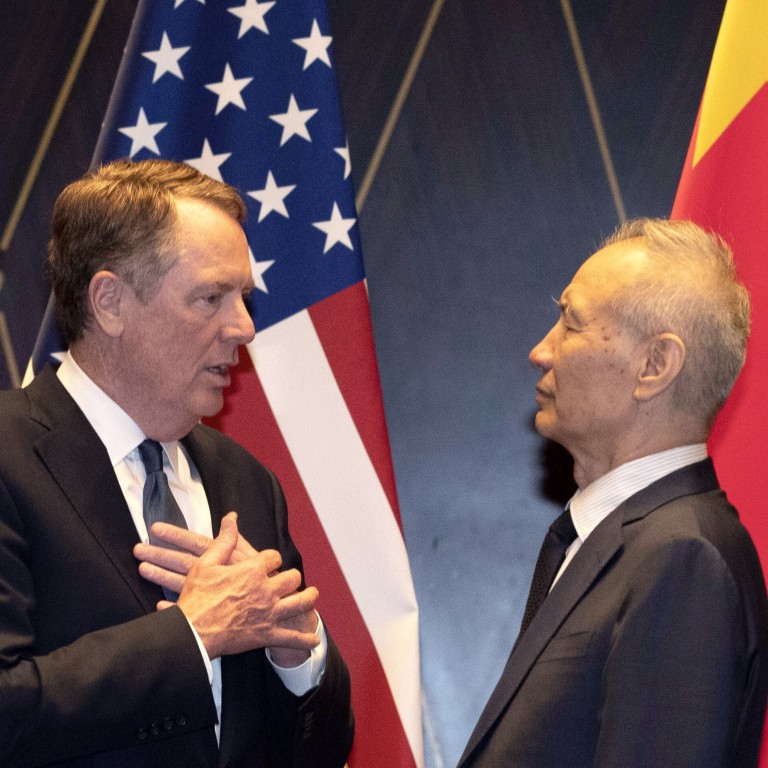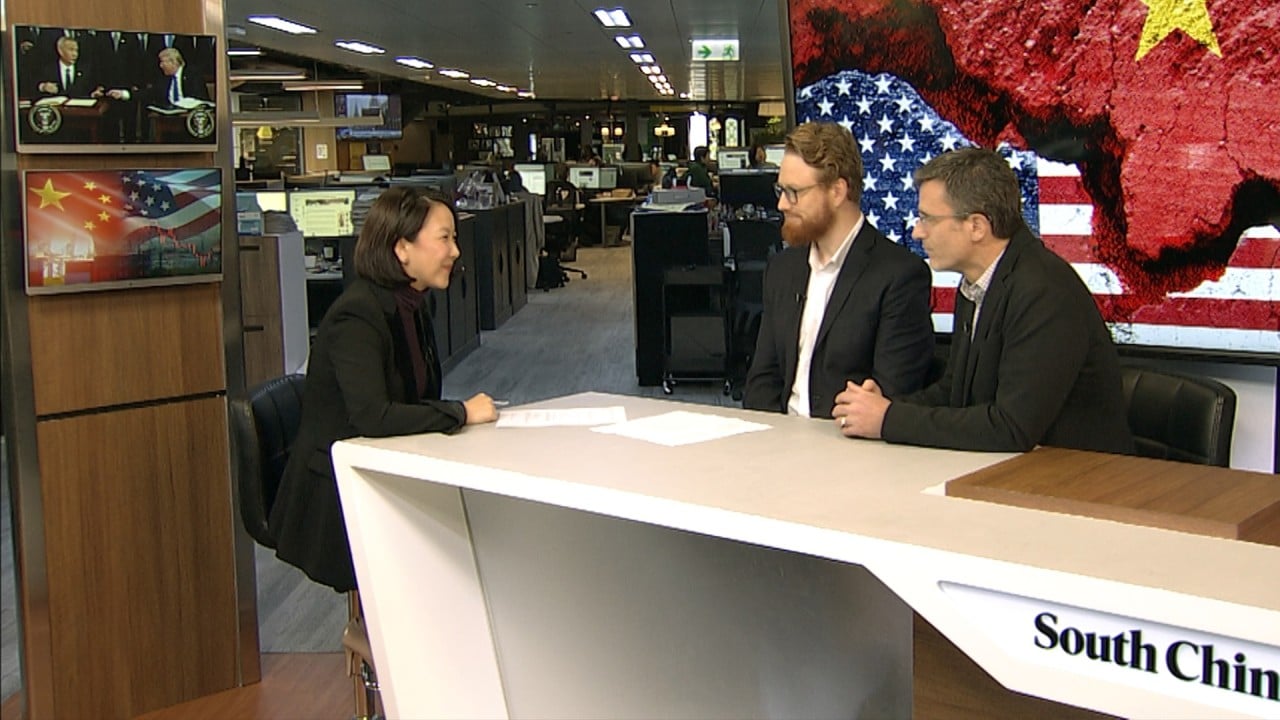
Keep tariffs on China and ‘hold their feet to the fire’ says US trade tsar
- Outgoing US Trade Representative Robert Lighthizer’s advice to US president-elect Joe Biden is to keep up the pressure on Beijing
- Incoming administration should stick to the phase one trade deal and solve specific issues through dispute settlement process, he says
The incoming Biden administration should keep up the pressure on China to stick to the phase one trade deal and use tariffs as leverage, according to outgoing US Trade Representative Robert Lighthizer.
In a rare interview late on Tuesday, Lighthizer said Beijing had done a “reasonably good job” in implementing parts of the deal. He also defended the Trump administration’s record in shredding the status quo on trade and imposing unilateral tariffs on US$370 billion worth of Chinese goods.
The tariffs have cost US importers US$71.6 billion since they started in July of 2018, according to US customs data. They forced companies to tear up supply chains, disrupted financial markets and slowed economic growth well before the coronavirus pandemic hit.
I would hold their feet to the fire on phase one. I think in some parts [China] have done a reasonably good job, in other parts they haven’t
He said Beijing was well behind on its purchase commitments, partly due to the pandemic. As of October, Beijing’s purchases of US goods and services were about half the level required by the phase one deal, on a prorated annual basis, according to the Peterson Institute for International Economics.
“I would use the dispute settlement process to resolve specific issues,” Lighthizer said. “I would keep the tariffs in place for sure. I think if you see the tariffs dissipating that’s a signal that we’re not serious about understanding that China is a strategic adversary.”
Joe Biden to name Katherine Tai for top trade job
Lighthizer, 73, a veteran trade lawyer, said Trump’s “America First” trade stance changed the objective of US trade policy “from servicing corporations who do business overseas to try to drag, or lure, more manufacturing back to the United States.”
He cited as an example the successor to the North American Free Trade Agreement, which requires carmakers to source more of their components in the US, Canada and Mexico.
Economic data thus far shows Trump’s tariff campaigns have had little impact on the overall US trade deficit for goods and services, however, and manufacturing job growth had slowed to a trickle even before millions were pushed out of work after shutdowns to curb the spread of the coronavirus.
Most importantly, Lighthizer said, Trump’s efforts had “changed the way people think about China in the economic sphere,” causing businesses to rethink their reliance on Chinese supply chains.

07:38
Unpacking the ‘phase one’ deal for the US-China trade war
Since he was first appointed as the top US trade official at the beginning of the Trump administration, Lighthizer has blamed the World Trade Organization (WTO) for failing to curb China’s trade abuses and rampant subsidies to state firms.
As a result of that campaign, there was now broad agreement on the need for WTO reforms, he said.
Lighthizer said the WTO may be better off with a simpler binding dispute settlement system. “Then you just have one-off arbitrations, and you’ll decide who wins and loses but you won’t create a law that applies to other cases,” he said.
In every proposal I’ve made, I’ve said we have to have a clause that says, that whatever we agree to, if China starts to do massive subsidies in this area and it’s hurtful, we have to be able to work together to solve that problem
Lighthizer also said the US and Europe should agree to cooperate in opposing any future “hurtful” subsidies used by China to build up its commercial aircraft industry.
He said he was working to settle a 16-year-old dispute between Washington and Brussels over past government aid to aircraft manufacturers, but expressed frustration that current WTO rules would not prevent future subsidies by the European Union or China.
“If this plays out, they can start a new subsidy tomorrow, and drag out that litigation for five or six years, and there’s nothing under the WTO that you can do about it at all,” Lighthizer said, adding he had made several proposals to settle the matter before the Trump administration leaves office.
“In every proposal I’ve made, I’ve said we have to have a clause that says, that whatever we agree to, if China starts to do massive subsidies in this area and it’s hurtful, we have to be able to work together to solve that problem,” he said.
Who will be the next director general of the WTO?
Lighthizer’s comments addressed what many trade experts have long regarded as the end game of the 16-year trade dispute – a transatlantic deal that the two sides could use to curb future subsidies by China in its fast-growing aerospace industry.
The WTO has ruled against every past use of government loans to develop new planes, but has not outlawed future subsidies.
US and European negotiators have been engaged in intensive talks about ending the dispute over government aid to Europe’s Airbus – which is politically backed by Britain, France, Germany and Spain – and US aid to Boeing.
Emily Haber, Germany’s ambassador to the US, on Wednesday urged quick action to resolve the dispute, calling it a distraction from bigger issues that require joint action such as climate change and the pandemic.
She said a solution was urgently needed, given the harmful impact of the coronavirus pandemic on aircraft manufacturers in both regions and moves by China to develop rival models.

